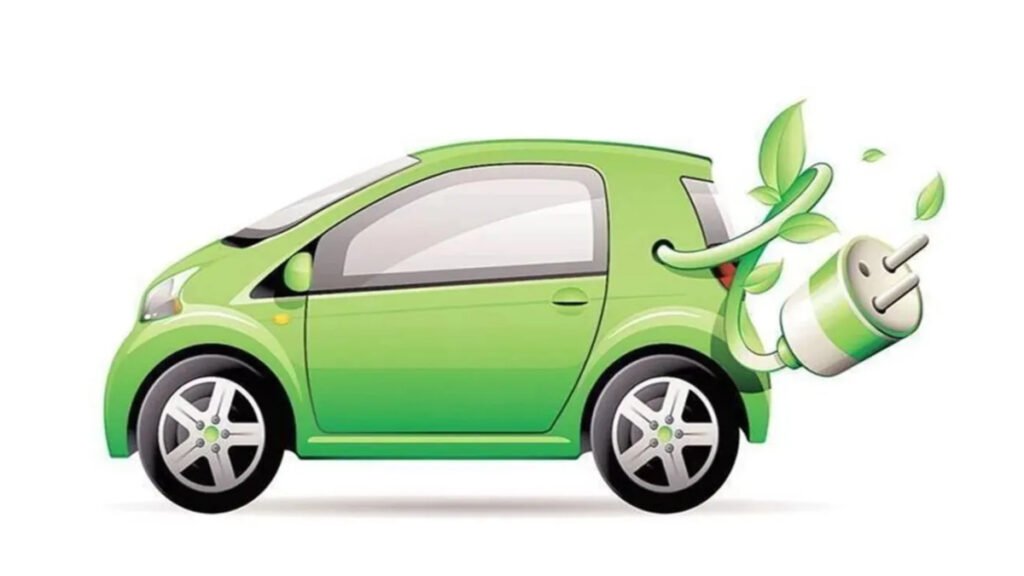GOI Approves Electric Vehicle Policy to Boost Local Manufacturing
The Government of India (GOI) has recently given the green light to a comprehensive Electric Vehicle (EV) policy aimed at revitalizing the automotive sector and bolstering local manufacturing. This move comes in the wake of escalating concerns regarding environmental sustainability and the urgent need to reduce vehicular emissions. The policy intends to not only promote the adoption of electric vehicles but also to establish India as a global hub for EV manufacturing.
The newly approved Electric Vehicle Policy encompasses a wide array of measures designed to incentivize the production, sale, and usage of electric vehicles across the country. It outlines various initiatives and incentives aimed at both manufacturers and consumers to encourage the transition towards cleaner and more sustainable modes of transportation.
One of the key components of the policy is the provision of financial incentives and subsidies to manufacturers of electric vehicles. These incentives are intended to reduce the production costs associated with EVs, thereby making them more affordable and competitive in the market. Additionally, the policy emphasizes the importance of research and development in the EV sector, offering grants and support to promote innovation and technological advancement.
Recognizing the crucial role of charging infrastructure in facilitating the widespread adoption of electric vehicles, the policy places significant emphasis on the expansion and development of charging stations across the country. Special incentives and subsidies will be provided to encourage the establishment of charging infrastructure in urban areas, highways, and other key locations, ensuring convenient access to charging facilities for EV owners.
By promoting the adoption of electric vehicles, the GOI aims to significantly reduce the carbon footprint of the transportation sector. Electric vehicles produce zero tailpipe emissions, thus contributing to improved air quality and reduced pollution levels. Moreover, the widespread adoption of EVs will reduce the country’s dependence on fossil fuels, thereby enhancing energy security and promoting sustainable development.
The approval of the Electric Vehicle Policy marks a significant milestone in India’s efforts towards fostering a greener and more sustainable transportation ecosystem. By incentivizing local manufacturing and promoting the adoption of electric vehicles, the policy not only addresses environmental concerns but also presents lucrative opportunities for economic growth and technological innovation.

Why this News is Important
The approval of the Electric Vehicle Policy holds immense significance in the context of addressing pressing environmental challenges. With vehicular emissions being a major contributor to air pollution and climate change, the promotion of electric vehicles signifies a proactive step towards mitigating these concerns.
By incentivizing local manufacturing of electric vehicles, the policy aims to stimulate economic growth and create employment opportunities within the automotive sector. This is crucial for achieving the government’s vision of a self-reliant and economically vibrant India.
The emphasis on research and development in the EV sector is expected to foster technological innovation and advancements. This not only enhances the competitiveness of Indian manufacturers but also positions India as a global leader in sustainable transportation solutions.
Reducing reliance on fossil fuels for transportation contributes to enhanced energy security by diversifying the country’s energy mix. The shift towards electric vehicles reduces India’s vulnerability to fluctuations in global oil prices and geopolitical tensions.
The transition to electric vehicles is expected to lead to improved air quality and public health outcomes by reducing vehicular emissions. This is particularly significant in urban areas, where air pollution poses serious health risks to the population.
Historical Context
In recent years, India has witnessed a growing awareness of environmental issues and the need for sustainable development. The approval of the Electric Vehicle Policy builds upon previous initiatives aimed at promoting cleaner and greener modes of transportation. Over the years, the government has introduced various schemes and incentives to encourage the adoption of electric vehicles, recognizing the imperative of transitioning towards a low-carbon economy.
5 Key Takeaways
| Serial Number | Key Takeaway |
|---|---|
| 1. | Financial incentives and subsidies will be provided to EV manufacturers to reduce production costs. |
| 2. | Emphasis on the expansion of charging infrastructure to facilitate convenient access to charging facilities. |
| 3. | Electric vehicles contribute to reduced vehicular emissions, improving air quality and public health. |
| 4. | The policy aims to stimulate economic growth and create employment opportunities within the automotive sector. |
| 5. | India’s transition towards electric vehicles enhances energy security by reducing dependence on fossil fuels. |
Important FAQs for Students from this News
1. What is the Electric Vehicle (EV) policy recently approved by the Government of India (GOI)?
A: The Electric Vehicle policy approved by the GOI aims to boost local manufacturing and promote the adoption of electric vehicles by providing incentives and subsidies to manufacturers and consumers.
2. How does the Electric Vehicle policy contribute to environmental sustainability?
A: The policy promotes the adoption of electric vehicles, which produce zero tailpipe emissions, thus reducing vehicular pollution and improving air quality.
3. What incentives are offered to electric vehicle manufacturers under the policy?
A: Electric vehicle manufacturers are provided with financial incentives and subsidies to reduce production costs and encourage the development of innovative technologies.
4. How does the policy address the issue of charging infrastructure for electric vehicles?
A: The policy emphasizes the expansion and development of charging infrastructure across the country, with special incentives for establishing charging stations in urban areas, highways, and key locations.
5. What are the potential benefits of India’s transition towards electric vehicles?
A: India’s transition towards electric vehicles is expected to stimulate economic growth, create employment opportunities, enhance energy security, and improve public health by reducing vehicular emissions.
Some Important Current Affairs Links

















